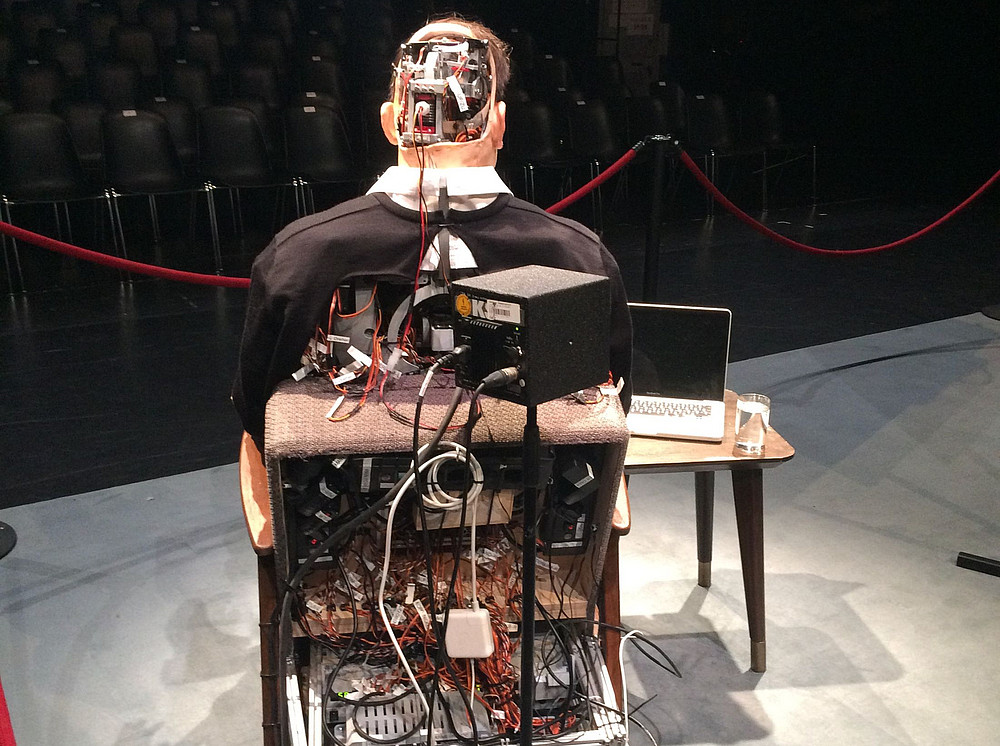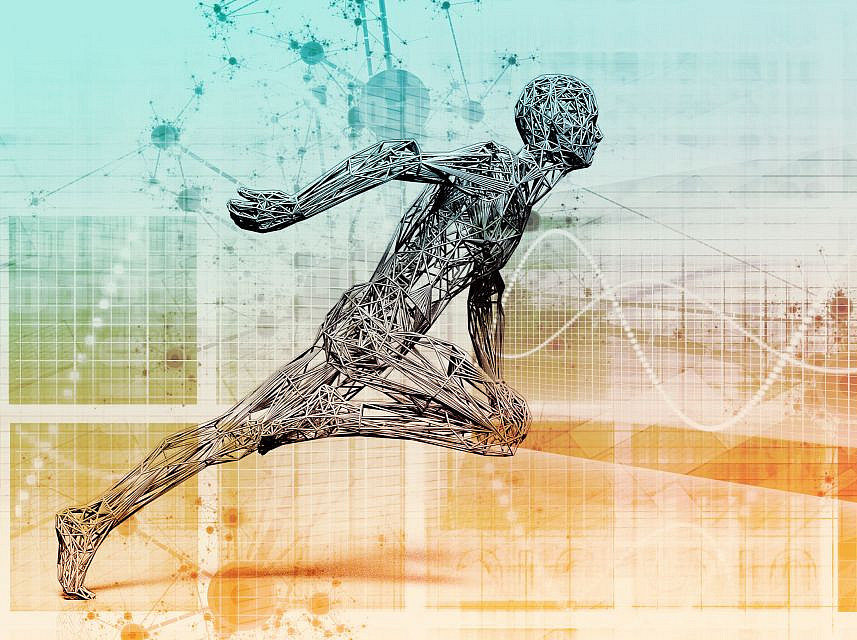Research activities at the Department
Limits of the Human
The aim of the research focus "Limits of the Human", initiated by members of the Modern German Literature Division under the direction of Univ.-Prof.in Dr.in phil. Anne-Kathrin Reulecke, is an interdisciplinary exchange on current and precarious questions of human existence.
The initial idea behind the research and teaching activities of "Limits of the Human" is that, on the one hand, medical advances in reproductive technology, organ transplantation, human enhancement and ageing and palliative medicine challenge traditional concepts of the human condition; on the other hand, technological innovations in robotics and developments in the field of artificial intelligence (in particular the medial linking of subjects with AI algorithms) are calling the status of the subject into question in the long term. These developments are not only controversially discussed and evaluated in public debates, but also and especially in contemporary literature, film and series.

LingLab research program
Students of linguistic subjects at the University of Graz have the opportunity to actively get to know scientific research work as part of their studies by participating in empirical work carried out at the participating departments (Department of English Studies, Department of German Studies, Department of Romance Studies, Department of Slavic Studies, Department of Linguistics).
Opportunities for participation
- Participation in linguistic experiments
- Practical work on linguistic projects
- Application for a new experiment

Before participating in a linguistic experiment/project, the application for permission to complete a career-oriented/relevant practice must be completed by the student and approved by the Dean's Office.
Graz Lectures on the Art of Writing
Since the summer semester of 2016, prominent representatives of the art of writing have been discussing questions that arise from the environment and practice of their work as part of the "Graz Lecture". In their fields of work, the lecturers may be located at the intersection and/or points of contact between the humanities and cultural studies, journalism and literature. The survival of a historical art of writing (for example in ideas such as the "good and appropriate style") will be considered in this way, as will the forms that a contemporary art of writing takes in the environment of new media.
The central question of the (event) series is: What am I actually doing when I write? What framework do I operate within and what possibilities does the art of writing have today?
The public lectures at the Literaturhaus Graz will be accompanied by a course at the Department of German Studies, in which students will approach the topics of the writers from a literary and media studies perspective and gain an understanding of the conditions under which current text forms are created. Together with the invited representatives, discussions are held in workshops accompanying the public lectures and current knowledge is generated. Students can thus gain unique insights into the lives and writing processes of professional writers.
Following the course and the public lectures at the Grazer Literaturhaus, the contributions of the invited authors will be published by Droschl Verlag in Graz by Univ.-Prof. Mag. Dr. Klaus Kastberger and Univ.-Prof.in Dr.in phil. Anne-Kathrin Reulecke.

Research Group "Transformations of the Human"
Colleagues from the Modern German Literature Division have been working and researching in the cross-faculty and interdisciplinary research group "Transformations of the Human. The Humanities between the Technocene and the Anthropocene".

Feuilleton - Writing between journalism and literature
The feuilleton, which originated in the Parisian press around 1800, has survived - as a department, as a journalistic-literary genre and as a way of writing and thinking - the media disruptions of the 20th and 21st centuries. It has always been a place of aesthetics in the journalistic-economic press, unfolding its complex poetics to this day in the field of tension between journalistic factuality and literary freedom of transformation, between (cultural) political debate and fleeting language play, between factual criticism and subjective mood.
In the research focus, the complex genericity of the feuilleton is captured in a genre model that argues from the perspective of literary and media studies as well as text linguistics. At the same time, the long history of feuilletonism from the end of the 18th century to the present is recounted.
Contact: Hildegard Kernmayer
